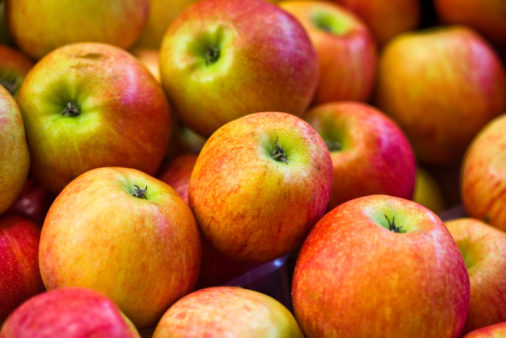23 women and 17 men between the ages of 40 and 62 participated in a randomized, controlled, crossover, intervention study. The volunteers were healthy but mildly hypercholesterolemic. They were given either two apples or a sugar- and energy-matched apple control beverage for eight weeks each, separated by a four-week washout period. Fasted blood was collected before and after each treatment, and researchers measured serum lipids, glucose, insulin, bile acids, and endothelial and inflammation biomarkers. They also looked at microvascular reactivity and arterial stiffness.
Related: Omega-3s May Lower CVD Risk, New Meta-Analysis Finds Juicing and Low-Carb Diets: Can you do both? Fresh Food Bolsters Brick-And-Mortar, According to Nielsen Report
The results: Whole apple consumption decreased total and LDL cholesterol, triacyglycerol, and intercellular cell adhesion molecule-1, and increased serum uric acid compared with the control beverage. The response to endothelium-dependent microvascular vasodilation was greater after the apples than after the control beverage. Apples had no effect on blood pressure or other CVD markers.The researchers concluded: “These data support beneficial hypocholesterolemic and vascular effects of the daily consumption of proanthocyanidin-rich apples by mildly hypercholesterolemic individuals.”










